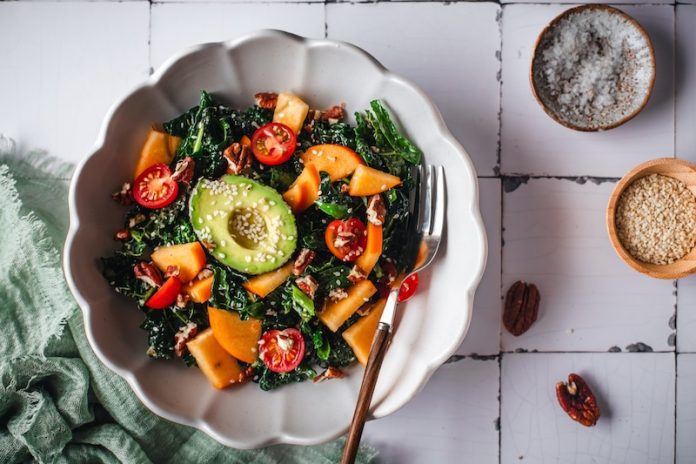
Arthritis, a common but often misunderstood condition, affects millions of people worldwide. It refers to the inflammation of one or more joints, leading to pain, stiffness, and reduced mobility.
While there are various types of arthritis, the most prevalent ones include osteoarthritis and rheumatoid arthritis. Managing arthritis involves multiple approaches, including medication and lifestyle changes.
One such lifestyle change that holds promise is adopting an anti-inflammatory diet. In this review, we’ll explore how certain foods can help alleviate arthritis symptoms and improve overall joint health.
Understanding Inflammation in Arthritis
Inflammation plays a central role in arthritis. When the immune system mistakenly attacks the synovium, the lining of the membranes that surround the joints, it triggers an inflammatory response.
This inflammation leads to the release of chemicals that damage the joints, causing pain and swelling. Over time, this chronic inflammation can result in joint damage and loss of function.
The Role of Anti-Inflammatory Foods
Anti-inflammatory foods are those that have been shown to reduce inflammation in the body.
They work by neutralizing the pro-inflammatory compounds, helping to alleviate arthritis symptoms. Here are some key anti-inflammatory foods backed by scientific research:
- Fatty Fish: Fish like salmon, mackerel, and sardines are rich in omega-3 fatty acids, which have powerful anti-inflammatory properties.
Studies have suggested that regular consumption of fatty fish can reduce the intensity of arthritis symptoms.
- Berries: Blueberries, strawberries, and raspberries are packed with antioxidants, particularly anthocyanins. These compounds have anti-inflammatory effects and may help reduce joint pain.
- Turmeric: Curcumin, the active compound in turmeric, is a potent anti-inflammatory agent. It has been shown to be effective in alleviating symptoms of osteoarthritis and rheumatoid arthritis.
- Ginger: Ginger contains gingerol, which has anti-inflammatory and analgesic (pain-relieving) properties. Ginger supplements or incorporating fresh ginger into your diet may help with arthritis-related pain.
- Olive Oil: Extra virgin olive oil is rich in monounsaturated fats and antioxidants, which can reduce inflammation. It is a key component of the Mediterranean diet, known for its anti-inflammatory effects.
- Leafy Greens: Vegetables like spinach, kale, and Swiss chard are high in vitamins, minerals, and antioxidants that combat inflammation. They are also rich in fiber, which supports overall joint health.
- Nuts and Seeds: Almonds, walnuts, and flaxseeds are excellent sources of healthy fats and anti-inflammatory compounds. They can be beneficial for people with arthritis.
- Green Tea: Green tea is abundant in polyphenols, which possess anti-inflammatory and antioxidant properties. Regular consumption may help reduce arthritis symptoms.
Scientific Evidence Numerous studies have explored the relationship between anti-inflammatory foods and arthritis relief:
- Omega-3 Fatty Acids: A study published in the journal Arthritis & Rheumatism found that omega-3 fatty acid supplements significantly reduced joint pain and stiffness in patients with rheumatoid arthritis.
- Turmeric and Curcumin: Research published in the Journal of Medicinal Food showed that curcumin supplementation reduced arthritis pain and improved physical function in osteoarthritis patients.
- Berries: A study in the Journal of Nutrition found that women who consumed more strawberries and blueberries had lower levels of inflammatory markers.
Incorporating Anti-Inflammatory Foods While anti-inflammatory foods can be beneficial, it’s important to remember that they are just one aspect of arthritis management. Here are some practical tips for incorporating these foods into your diet:
- Create Balanced Meals: Build meals around whole foods, incorporating a variety of anti-inflammatory ingredients.
- Smoothies: Add berries, leafy greens, and a teaspoon of turmeric to your morning smoothie.
- Healthy Fats: Replace saturated fats with olive oil, avocados, and nuts in your cooking.
- Spice It Up: Use ginger and turmeric in your recipes for added flavor and anti-inflammatory benefits.
- Fish: Include fatty fish in your diet at least twice a week.
Conclusion
While there’s no cure for arthritis, adopting an anti-inflammatory diet can be a valuable tool in managing symptoms and improving joint health.
Incorporating foods like fatty fish, berries, turmeric, and leafy greens can help reduce inflammation and alleviate pain.
However, it’s essential to consult with a healthcare professional or a registered dietitian before making significant dietary changes, especially if you have specific dietary restrictions or medical conditions.
Remember, a well-balanced diet, combined with other arthritis management strategies, can contribute to a better quality of life for those living with arthritis.
Follow us on Twitter for more articles about this topic.
Copyright © 2023 Scientific Diet. All rights reserved.





